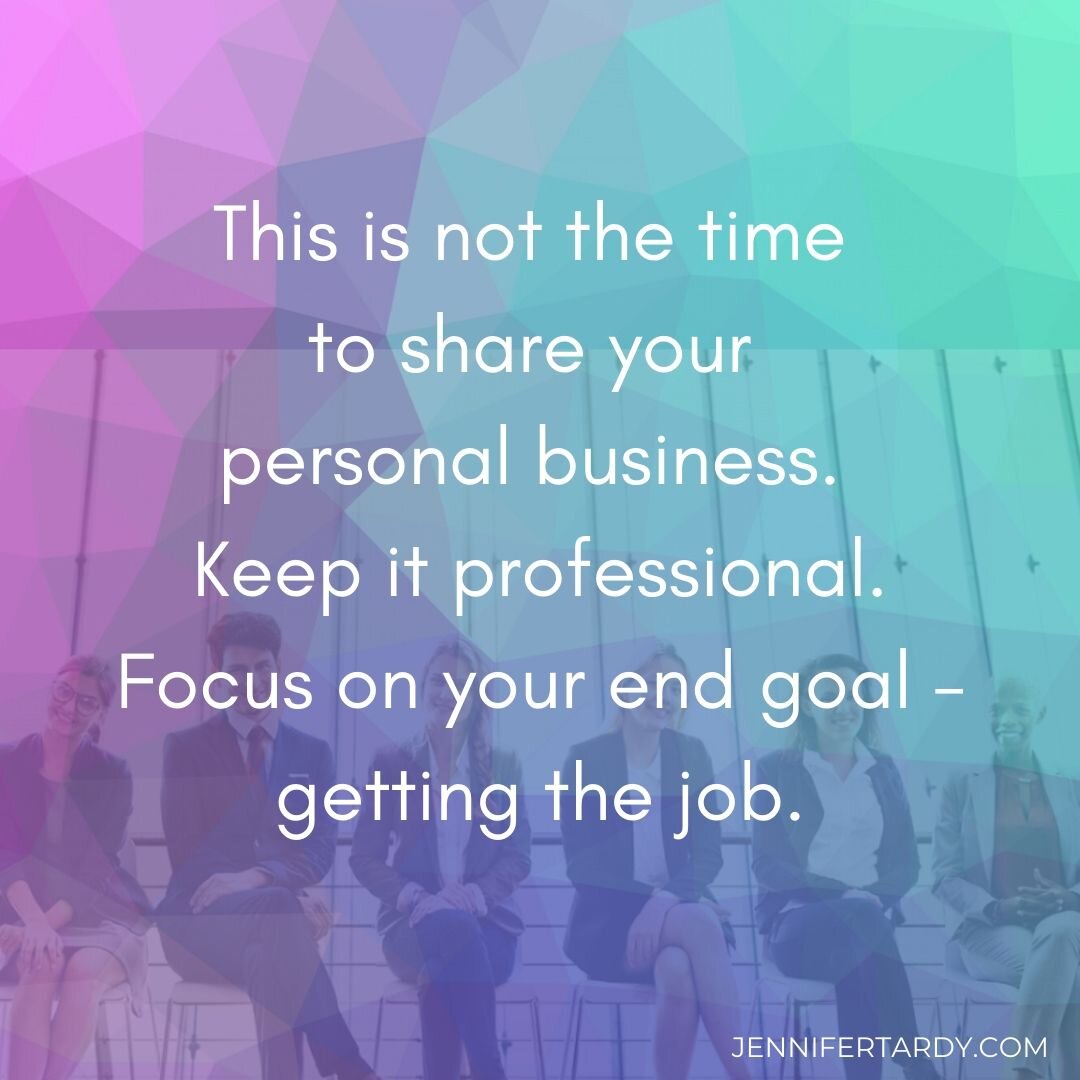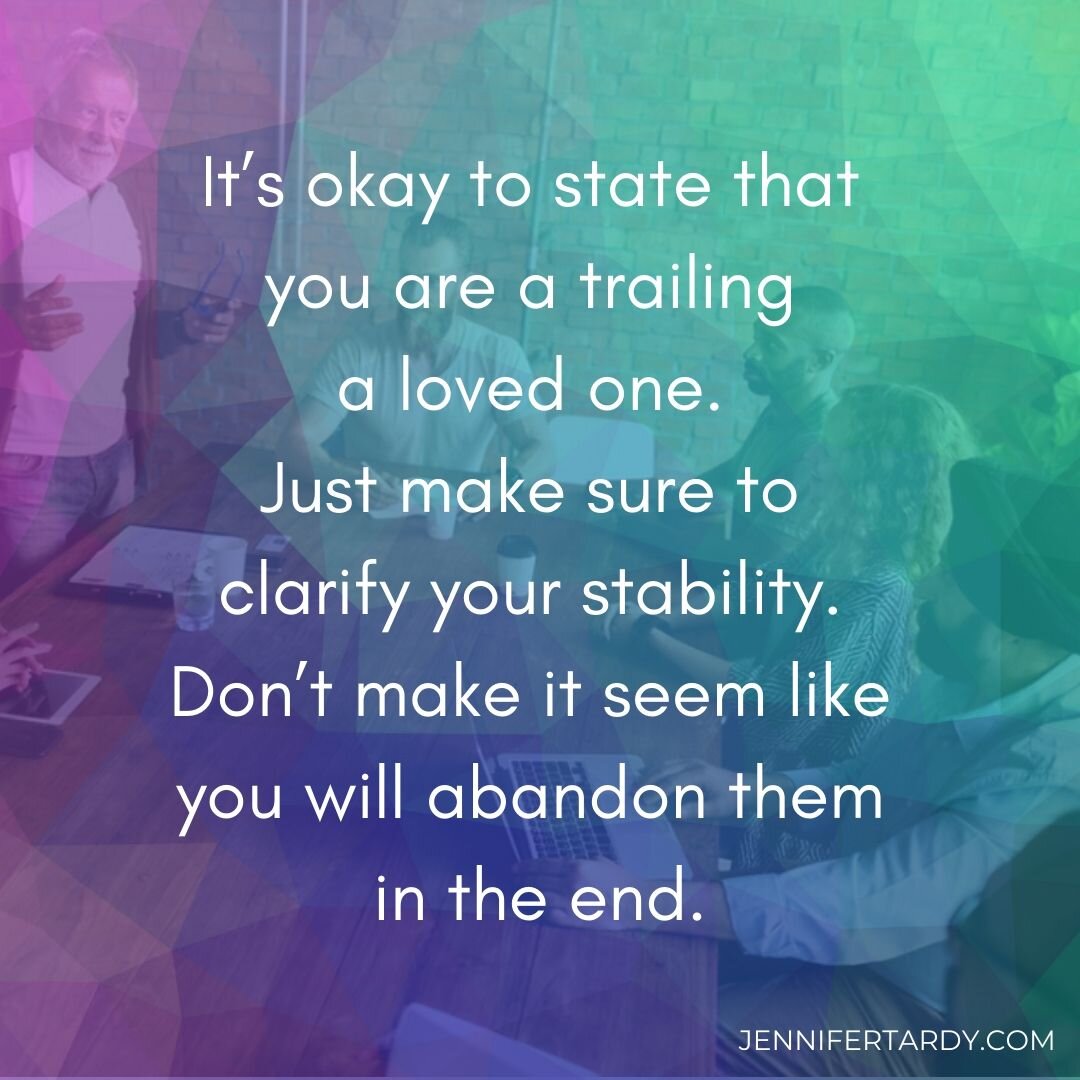episode #14
Career Success TV
Why Did You Leave Your Last Employer
(Good Answer For Job Hoppers)
Seeking interview tips? Want to know how to answer, “why did you leave your last job?”
Well, Your Career Coach, Jennifer Tardy, provides career advice in this video with a vision for your career success. This is one of many interview questions and answers.
In this week’s video, there will be a great discussion on what is a good answer for the reason for leaving a job or reason for leaving a CURRENT job.
There will also be a segment on how to NOT answer this question because let’s be real, we don’t always say the right things all the time.
Even if we think we have the right words to say, it can come out wrong messing us up in the end.
Given both the correct and incorrect way to answer will help put you on the right path to making the best decision when placed under the pressure of facing this question head on.
If you are looking for acceptable answers for leaving a job, you’ve found the right video.
So, why are you leaving your current job? Get the best interview questions and answers here.
Social Media Share Images







Read the Transcript
Hey job seekers. Jennifer Tardy here, your career success coach. Today, we continue our job interview question and answer series. Now, we have already answered five questions for you so far. Tell me about yourself. What are your strengths? What are your weaknesses? Where do you see yourself in five years? Why did you decide to apply to this job?
Now, today we are going to answer the question, why did you leave your last employer? I know this is a question most people cringe, when they’re trying to answer this question. Whether you left your last employer, or they’re asking you why are you leaving your current employer, this answer is there to answer that for you. As always, do not forget to stick around to watch my favorite segment, the Career Success Bonus Tip for underrepresented populations, or UP’s, as I like to call them. We have a lot in store for you today. Watch the video. I’ll see you in a second.
Let’s get right into it. Why did you leave your last employer? Now, why on earth would an employer even care enough to ask you this question? This is a great question to uncover the drama. If you are a risk taker and you want to just tell them all the drama, rest assured that, that is going to be a huge red flag. No one wants to hire a person that is dragging along drama with them. It doesn't matter why you left your last employer. It is your responsibility to, not be negative.
Okay. Here’s how to not answer this question. Let’s be clear. You don’t answer this question by saying, “Oh, I left a bad boss. Oh, the environment was just toxic.” Do not say anything negative about the employer, about the role, or about your supervisor. Okay? Here’s how to answer this question. You answer this question by framing it in a way, that shows you’re running towards something great, and not running away from something horrible.
How do you do that? You’re able to tell your employer that there was something about either that organization, that actual position, about that manager, about the brand of the organization, that there was something that you saw with this organization, or this employer, or this job, this role, this title, everything that really intrigued you, even though you were content where you were working before. In some instances you were very satisfied with where you were working before. You believe that because of that, this is the next best step for you. You see how that works?
Side note. I mentioned that it could be a red flag if you’re speaking negatively of your last employer. What do you think that red flag indicates? Talk to me about it. Tell me in the comment section. What do you think that red flag ... Why do you think that gets red flagged to the employer? I’m really interested in knowing your answer to that, okay?
Speaking of leaving an employer, how do you find a job while you are currently working? That’s most of us. Most of us, when we are looking for a job, the best time is when we’re currently working, when we are currently employed. Now, if you want to know how to find a job, while you have a job, then check out my video. Of course, you know I’m going to have a video for you. You already know this. Be sure to check out that video. It’s going to give you some good tools, and tips, and tricks on how to find a job while you’re still currently employed.
Now, you’re at my favorite segment, which is the career success, bonus tip for underrepresented populations, or as I call them, UP’s. Now, if you get asked the question, why did you leave your last employer, or why are you leaving your last employer, I want you to know that it is completely okay and acceptable to be a trailing loved one. Now, being a trailing loved on typically, typically affects women, more than it affects other groups. I’m using women as the underrepresented population in this example.
Being a trailing loved one is the person who has to relocate to be with her partner, her significant other, because her partner’s in the military. Maybe she’s in the military, right? To be that person that goes along with another person, completely acceptable and a really good justification for why you are leaving, or maybe have left an employer in the past, right? If that is your circumstance, be sure to share that.
Also, what’s really important in this instance, is to also share with the employer, that where you are currently, you’re very stable and there’s no sort of indication at all, that you’re going to be relocating again. That’s important to tell them, because they don’t want to think that, because you left this, and this, and this and this employer, that you’re also going to leave them too. You have to close that gap, when you’re using that as your justification.
Thank you for checking out this video. Always remember, that in order for us to be underrepresented, no more, we must learn, engage, apply, repeat and do it now. Learn. Until the next time, I’m Jennifer Tardy, your career success coach and I’ll see you in the next video.

